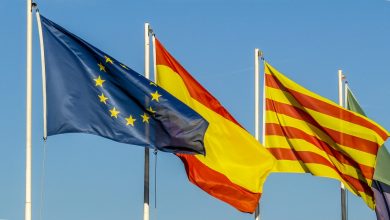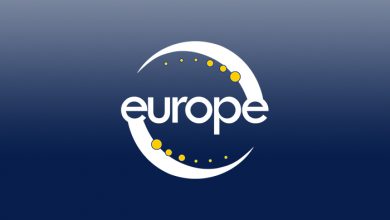Is the European Union an Empire?

Is the European Union an empire? On the surface, this might seem like a really weird question. “Empire” is a word with many connotations, most of them negative. Arguably, none apply to the European Union: it is not a monarchy, it does not hold colonial possessions on the mainland or overseas, it isn’t a military juggernaut out for conquest – and the business definitions of empire are definitely off the beaten path. And yet, an increasing number of political scientists are referring to the EU as a kind of imperial polity, if not an outright empire. What’s behind this recent trend, and does the definition hold water?
The Political Definition of Empire
Political scientists defining the EU as an imperial polity do so in reference to a very specific definition of empire. At this point, it’s important to stop and keep in mind that such definition – like most definitions in the field – is arbitrary to a degree, subjective, and usually quite distinct from the vernacular meaning. This means that its applicability to everyday language is limited. No matter how many papers are published detailing lists of supposed EU imperial characteristics, European citizens are unlikely to start referring to the Union as an empire any time soon. Nevertheless, given the growing references in the academic literature, it is interesting to explore what lens European integration is being read through.
Scholars such as Hoerber, Sigalas, Muenkler, Grande, and others define an “empire” as a more fragmented alternative to the modern, territorial nation-state. Rather than a classical pre-national political entity based on military might (like the Roman Empire) or a hegemonic project on the part of a nation-state to assert dominion over the planet (like the British Empire), the European Union would be classified as a new type of empire, with some critical differences. Traditional empires (and, to some degree, nation-states) have a centralised institutional framework, with a distinctive capital from which all power emanates to the periphery. This is a far cry from the mesh of regional, national, and supranational governance the EU is built upon.
Clear borders are one of the hallmarks of nation-states, but imperial borders tend to be fuzzy. Scholars point to the uncertainty surrounding European borders – while EU membership is pretty distinct, the circles of affiliation involving the EEA, EFTA, and various special partnerships, make the European borderlands considerably harder to pin down exactly in a political and economic dimension. But where a traditional empire typically involves an exploitative relationship between the centre and the periphery, driven by a monocephalic power structure, an imperial polity is driven by civil and cooperative policymaking. The fragmentation of institutions leads to a polycephalic system of power, where “loser’s consent” is a fundamental requirement for every policy. The taboo of violence, rather than coercive violence towards the periphery, is what these authors place at the heart of European integration.

Scholars also cite an overarching mission as a defining characteristic of old and new empires – as opposed to nation-states, whose primary concern is their preservation and furthering of their interests. This kind of imperial mission is a specific, ontological purpose that justifies the existence of the political entity. For the European Union, this objective is regularly identified as the establishment of peace and prosperity in Europe, following the calamity of the two world wars. This mission is what motivates the EU’s continued existence, and serves as the “guiding light” of its policies.
Imperial Priorities
Scholars who adopt this definition of the EU as an imperial polity are quick to point out this has real-world implications, mostly apparent in European political debate. Furthering peace, security and prosperity across a sphere comprising multiple nations is one such implication, which usually goes hand in hand with the promotion of economic prosperity. Preoccupations about both areas figure prominently in debates about European integration and crisis management.
More importantly, there is a clear civilisational divide between the imperial polity and the outside world, which is contrasted with domestic political life for its stark differences in values and norms. For instance, European attitudes that go beyond national specifics – on subjects like healthcare, foreign policy, human rights etc – are often defined in opposition to the other great powers of the day, such as the United States, Russia, and China. This divide is typically not met with hostility, but with a desire to promote one’s values abroad. The European Union is certainly greatly preoccupied with strengthening democratic standards across the world, for example by including human rights clauses wherever possible when striking trade deals with third countries.
Last but not least, policy both at home and abroad should be in accordance with the overall mission at the heart of the political entity. If this means promoting human rights and free trade abroad, it also means fighting against corruption and stimulating economic development at home. Most critically, the imperial polity becomes a successful mediator for political conflicts between its centre and its periphery. Thanks to its decentralised structure, and the common desire from the various political actors to have stakes in the outcome of negotiations, the millennia-old practice of imperial discrimination on its borderlands is avoided.

A Union by any Other Name
When looking at the above criteria, we can see why an increasing number of political scientists refer to the EU as an imperial polity. However, the earlier caveats on subjectivity and arbitrariness remain. All we can really say for certain is that the analysis is internally consistent, based on the parameters established at the outset. To put it bluntly, that doesn’t mean it’s “true”, broadly speaking. Whether it’s politically expedient, useful, or accurate from a communication standpoint to label the EU as an empire is an open question, and one which non-academics can reasonably be sceptical about. The term did make its way outside of academia, as noted by Hoerber and Sigalas. EU Commission President Barroso said as much in 2007, claiming that the EU was the world’s “first non-imperial empire”.
Ultimately, it is hard not to escape the conclusion that this is just another chapter in the constant soul-searching that marks European political culture. “What is the EU?” is a question that evades simple answers. There is no historical or contemporary equivalent for this ambitious project of regional integration, and attempts to make the EU fit the categories of the past always come up somewhat short of the mark. Sitting somewhere between being an international organisation, a confederation of states, a federal state in its own right, or a multi-national federation, the EU is a bit of all the above, but neither of those can describe it fully and accurately.
“Empire” is a definition that is, therefore, in good company – a partially accurate attempt, at best, to define a daring political project that defies definition. Whether it will have more success than its counterparts will have to be seen. The European Union will continue to change and deal with a difficult world around it, but the quest for a handy label to describe it still has no end in sight.





